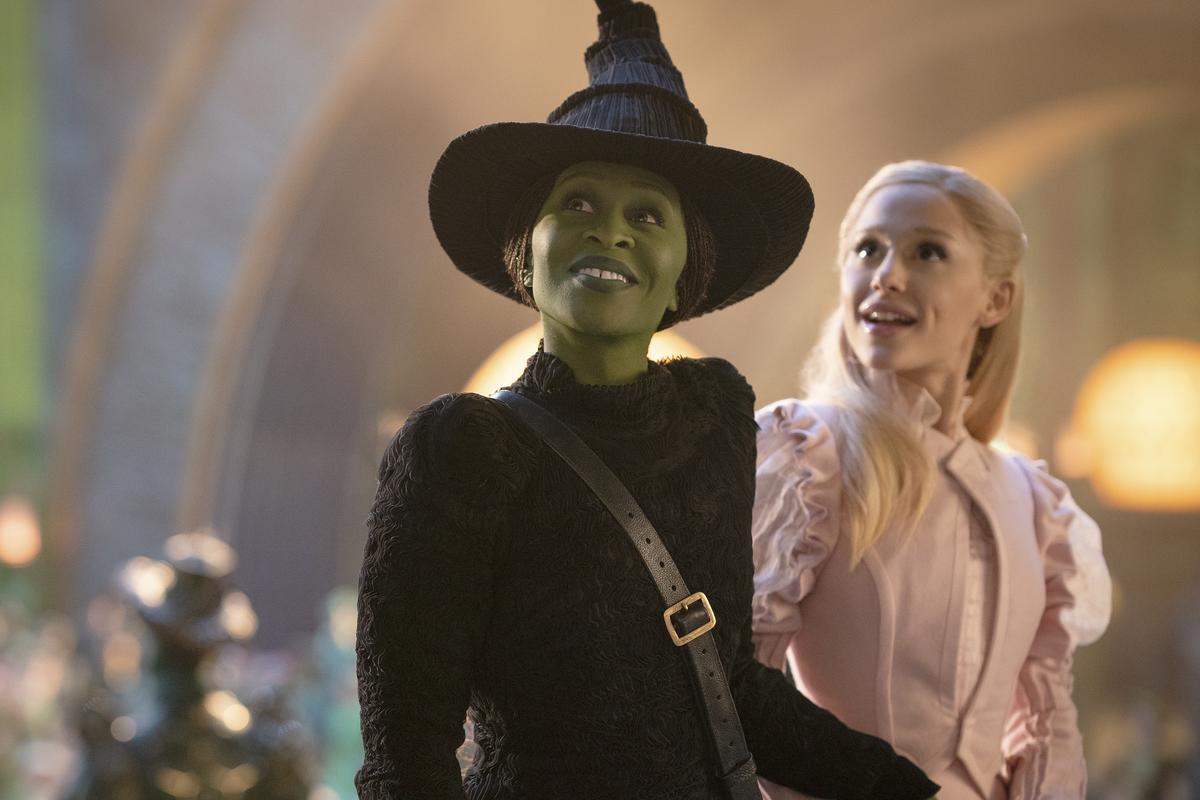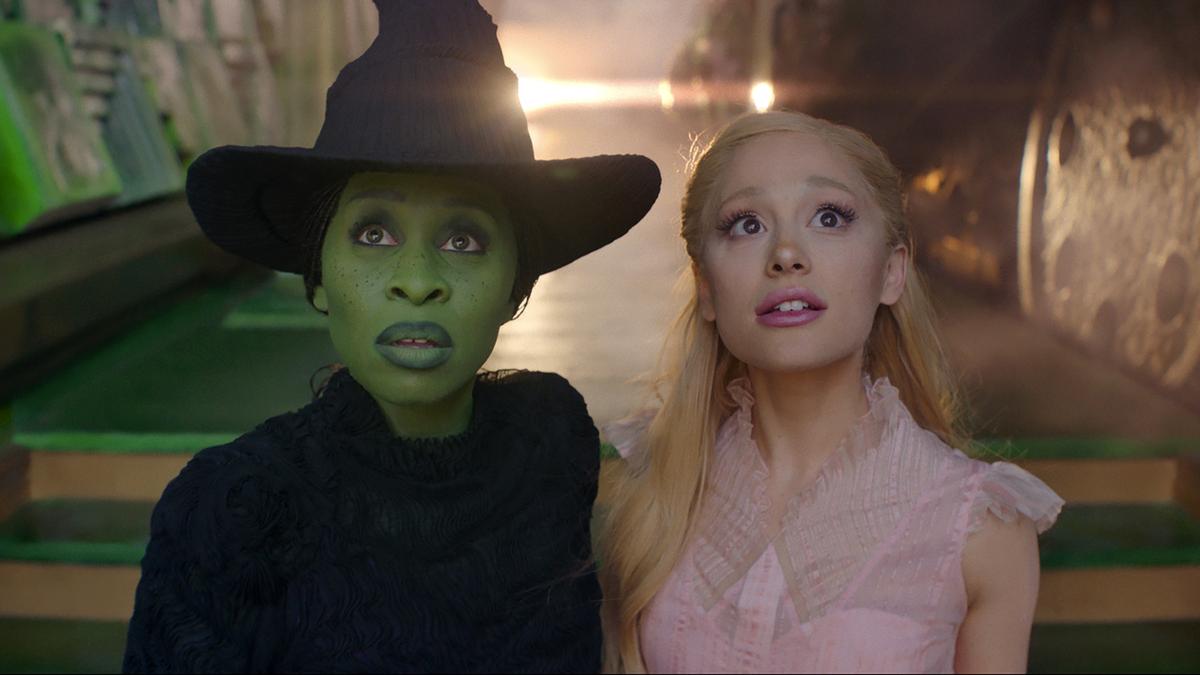She did not eat grass as a child nor is she seasick, insists the green-skinned Elphaba (Cynthia Erivo) in Wicked, the movie adaptation of the Broadway musical which in turn was inspired by Gregory Maguire’s 1995 novel, ‘Wicked: The Life and Times of the Wicked Witch of the West’.
After Maleficent, which looked at the Sleeping Beauty story from the antagonist’s point of view, here is another revisionist look at the famous wicked witch from the other side of L. Frank Baum’s 1900 novel ‘The Wonderful Wizard of Oz’.
For those who came in late (like in all those Phantom comics), director Jon M. Chu (Crazy Rich Asians) provides a précis of events where Dorothy liquefied the Wicked Witch of the West and went home to Kansas down the Yellow Brick Road with her dog Toto, The Cowardly Lion, The Tin Man and The Scarecrow. As the people of Oz celebrate the death of the Wicked Witch, the Good Witch, Glinda (Ariana Grande), joins in.
When one of the good people of Oz asks her about the Wicked Witch, Glinda admits to knowing her and it is time for a flashback. Elphaba was the daughter of the Governor of Munchkinland, Thropp (Andy Nyman). The colour of her skin, thanks to her naughty mum (Courtney-Mae Briggs), meant Elphaba was always rejected and made fun of by those around her.
Wicked
Director: Jon M. Chu
Cast: Cynthia Erivo, Ariana Grande, Jonathan Bailey, Peter Dinklage, Michelle Yeoh, Jeff Goldblum
Runtime: 160 minutes
Storyline: The story of how a misunderstood little green girl became the all-powerful Wicked Witch of the West
She feels responsible for her paraplegic younger sister, Nessarose’s (Marissa Bode) condition too. When she comes with her father to drop Nessarose at the stately Shiz University in Oz, her father insists she stay to see Nessarose is properly settled in. The Dean of Sorcery, Madame Morrible (Michelle Yeoh), sees Elphaba’s power and proposes to teach her to control her magic. Glinda or Galinda as she is known then, is pretty, pink and popular. While she wants to study sorcery under Madame Morrible, she is not prepared to have Elphaba as a roommate as suggested by Morrible.
Despite the initial hiccups, the two very different girls become friends, bonding over a wild party at the Ozdust Ballroom. Elphaba is sensitive to the undercurrents at Oz including the fact that animals are being excluded and losing their voice as the history professor, a goat named Doctor Dillamond (Peter Dinklage) reveals. The campus is in a tizzy when the handsome and determinedly shallow Winkie prince, Fiyero Tigelaar (Jonathan Bailey) joins Shiz. Though Elphaba dreams of meeting and impressing The Wonderful Wizard of Oz (Jeff Goldblum), so that she can ask him to change her skin colour when she finally does meet him, that is not what she asks for.

Cynthia Erivo, left, and Ariana Grande in a scene from the film ‘Wicked’
| Photo Credit:
GILES KEYTE
Wicked works wonderfully well on so many levels. It is a study of what makes people do the things they do, or think the way they do. It is a look at what is considered normal and what creates a villain, all the while celebrating the joys and tears of being different.

Wicked is a musical, with gloriously choreographed songs and an action film with breathtaking stunts. The sets, physical and CGI, are eye-popping, especially the library with its books (rare and medium rare as Glinda helpfully points out) stacked in gigantic wheels — wish Fiyero did not step on books though. The girls’ room, the Ozdust Ballroom, the Emerald City, the weird and wonderful train that takes Glinda and Elphaba to Emerald City, and many more, are all glorious sonnets to the imagination.
Erivo and Grande own their roles, singing, dancing and dueling with gusto while Bailey is delightful as the callow, charming Prince. Yeoh is grandly inscrutable and there is special joy in watching Goldblum do a jig. The 160 minutes of Wicked slip by in a Technicolor flash and the fact that there is Part II, coming out in 2025 puts a jolly song in one’s heart.
Wicked is currently running in theatres
Published – November 22, 2024 05:39 pm IST





























/cdn.vox-cdn.com/uploads/chorus_asset/file/25739950/247386_Elon_Musk_Open_AI_CVirginia.jpg)
